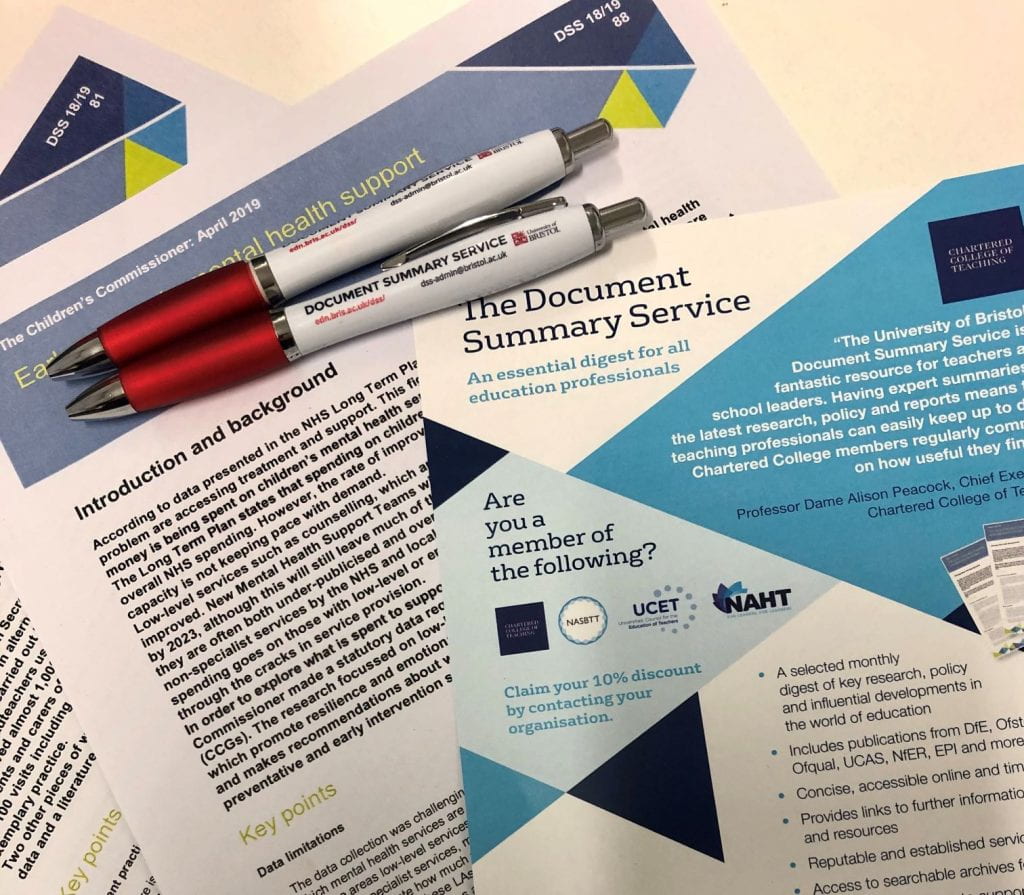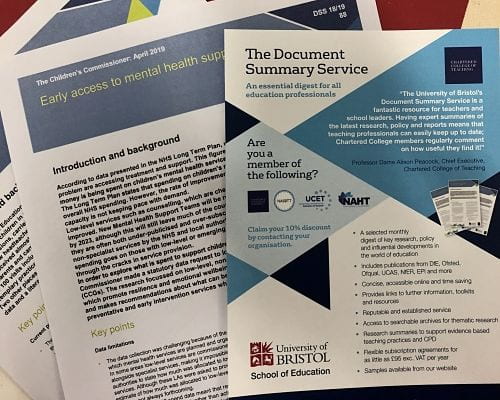Blog post by Helen Aberdeen, Director of the Document Summary Service
What a Spring term it turned out to be for those of us in the education sector! In my role as a PGCE tutor I have been on a steep learning curve getting to grips with all things online. In my other role as Director of the Document Summary Service, things have carried on a more even keel. As we moved into March I had wondered if every report research and guidance report produced would be focussed on the current crisis, but this turned out not to be the case – interesting and useful reports continue to emerge from a wide range of sources. I should also mention that the summaries have become an invaluable resource as out student teachers move to working independently. (more…)







